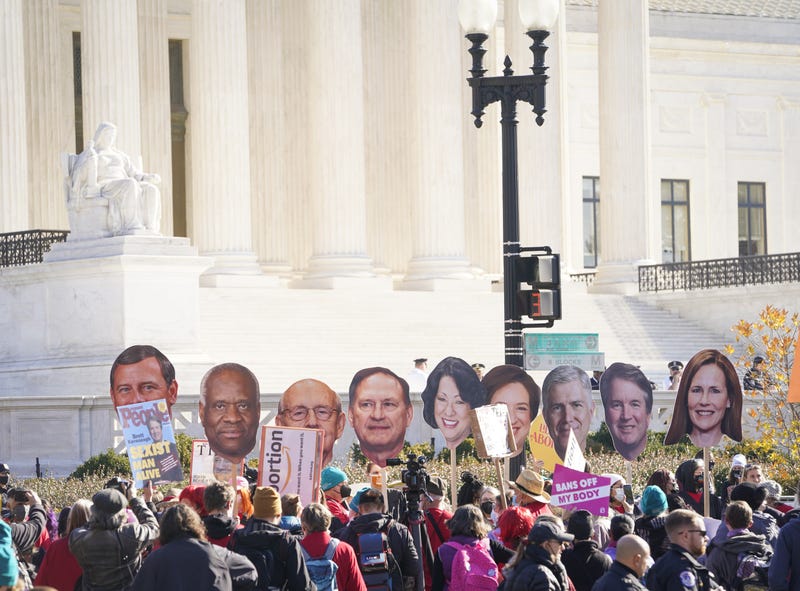

PHILADELPHIA (KYW Newsradio) — The U.S. Supreme Court recently heard oral arguments about a case that could overturn Roe v. Wade and fundamentally change abortion rights in this country.
Overturning that decision could have severe ripple effects in multiple directions — namely, advocates say, repealing the landmark court case would not stop women from getting abortions. It would only stop them from getting safe and legal ones.
“We have a very polarized country,” said Dr. Susan Liebell, professor of political science at Saint Joseph’s University.
Depending on the state, she said pockets of the country could retain strong protections and access, while others could be entirely restricted.
“Some of them will be close to a state where you could drive across state lines and acquire a legal abortion. Others will be in places where that may require driving hundreds and hundreds of miles,” Liebell noted, disproportionately affecting poor and young women.
“But I think that overall,” she continued, “we will have very, very different access across the country. And we could also see changes — were anything to be mentioned about fetal personhood in these decisions — also to access to some things that some people consider to be birth control, but that could also be regulated at the state level.”
After nearly 50 years of Roe v. Wade being in place, how did we even get here?
In this episode of KYW Newsradio In Depth, Liebell breaks down what Roe v. Wade — and Planned Parenthood v. Casey — fundamentally mean, where the justices stand on those issues, and what potentially overturning them would mean for the future of women’s rights and the Supreme Court itself.
Listen to In Depth in the player below.



